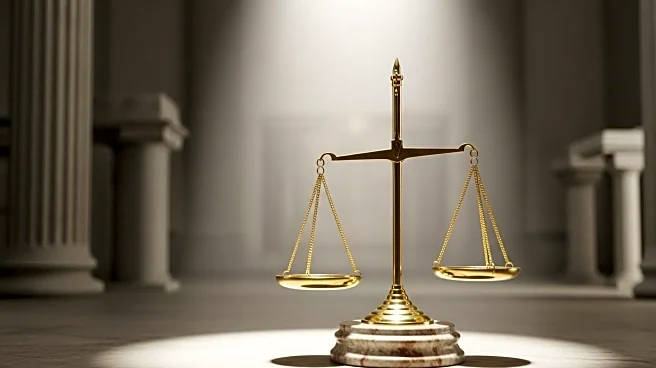What is the story about?
What's Happening?
Justice Clarence Thomas has expressed skepticism about the Supreme Court's reliance on legal precedents, suggesting that the Court should adopt a more critical approach to settled precedents. During a public appearance at The Catholic University of America Columbus School of Law, Thomas argued that some precedents may not have solid foundations and should be revisited. He likened the Court's reliance on precedent to adding more cars to the back of a long train without checking the direction, implying that blindly following precedent could lead to misguided decisions. Thomas emphasized the importance of questioning the basis of precedents rather than accepting them without scrutiny.
Why It's Important?
Justice Thomas's remarks highlight a significant debate within the Supreme Court regarding the role of stare decisis, the legal principle of determining points in litigation according to precedent. His views suggest a potential shift towards a more originalist interpretation of the Constitution, which could impact future rulings on key issues such as civil rights, abortion, and environmental regulations. This approach may lead to the overturning of established precedents, affecting legal stability and predictability. Stakeholders in various sectors, including legal professionals, policymakers, and advocacy groups, may need to reassess their strategies in light of potential changes in judicial philosophy.
What's Next?
The implications of Justice Thomas's stance may influence upcoming Supreme Court cases, where the balance between precedent and originalist interpretation could be pivotal. Legal scholars and practitioners will likely continue to debate the merits of stare decisis versus originalism, potentially affecting the Court's approach to future cases. As the Court considers new cases, the tension between maintaining legal continuity and adapting to evolving interpretations of the Constitution will remain a central issue.
Beyond the Headlines
Justice Thomas's comments may also reflect broader cultural and ideological shifts within the judiciary, as debates over the role of precedent often intersect with discussions on judicial activism versus restraint. The long-term impact of these shifts could redefine the boundaries of judicial decision-making, influencing how laws are interpreted and applied across the United States.

















